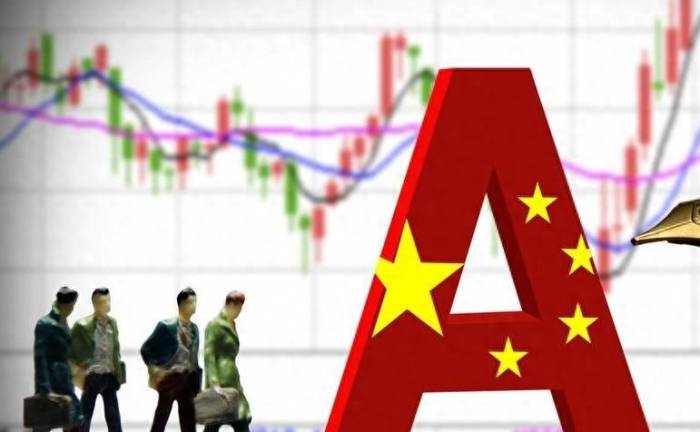Translation in English: Unexpected bearish news! The Chinese yuan is plummeting
Stock Market Dive
Yesterday, with the support of new energy and the "Golden Special Estimate" on the Shanghai Stock Exchange, the A-share market made a strong comeback, forming a deep V-shape. However, this momentum did not continue into today, as the A-share market visibly weakened. The two main themes of AI and China Special Estimate continued to recede, and new energy failed to take up the mantle. The market fell into a rapid rotation state without a main theme, with capital entering a speculative mode. Many sectors, even if they rebounded, were only for a day, and the continuous shrinkage of trading volume also reflected the caution of capital.
Moreover, today marked a significant defeat for the artificial intelligence sector. Although the AI hype began to show signs of decline in April, with semiconductors and servers peaking in April, media sectors such as gaming and publishing continued to be hyped. This week, the media sector began to plummet consecutively, with the gaming ETF falling nearly 20% in eight trading days. Today, many previously resilient high-profile stocks also hit their limit down, such as Cambridge Technology. The recently hyped AI+Education also plummeted, as thematic speculation requires sentiment and capital, which will inevitably recede in a shrinking volume.
Looking at the news, today the National Bureau of Statistics released the economic data for April. Except for the urban surveyed unemployment rate, retail sales, industrial added value, and fixed asset investment were all below market expectations. Even employment is not as good as the numbers suggest, with the surveyed unemployment rate for the labor force aged 16-24 rising to 20.4%, a new high, higher than during the pandemic, which is absurd. With more than 10 million graduates entering the society, the employment pressure is unimaginable.
Last week's CPI data, social financing data, and today's economic data all fell short of expectations, causing market expectations for economic recovery to plummet, damaging market confidence, and making a weak recovery a consensus. Moreover, due to the political bureau meeting and the economic work conference setting the tone, it is unlikely that there will be total stimulus policies in the short term. Last year, there was still room for speculation on stable growth policies, but now there is little room for speculation. The A-share market is in an awkward situation of "weak reality, weak expectations," which is the core reason for the recent continuous weakness of the A-share market.
Additionally, the second wave of the pandemic is about to begin. According to reports, in Guangzhou, among the fever patients tested at fever clinics, 20%-25% are infected with the novel coronavirus. Although the severity of the second wave is far from the first, it will still add pressure to the economy, which is already relying on the recovery of the service industry.
Today, in the A-share market, the COVID-19 drug sector was lifted, with Xinhua Pharmaceutical and Zhongsheng Pharmaceutical hitting their limit up, clearly indicating that capital is speculating on the second wave of the pandemic.
Due to the market's weakened expectations for China's economic recovery and the widening interest rate differential between China and the US, the recent RMB exchange rate has plummeted, falling more than 200 points during the day, and if it falls further, it will test the 7 threshold again. Moreover, there is a clear divergence between the RMB and the US dollar, with the US dollar still at a low level while the RMB is at a high level, which is a sign of weakness.Specifically, by the close, the Shanghai Composite Index fell by 0.60%, and the ChiNext Index fell by 0.25%. The turnover of the two markets shrank to 0.86 trillion, and the net outflow of Northbound capital was 3.401 billion, with more than 3,500 individual stocks declining across the two markets.
Looking at the industry breakdown, only the pharmaceutical and biological, electronics, power equipment, and coal industries saw gains, while the media, computer, social services, retail trade, and building decoration industries led the decline.
Today, the surge in the storage sector drove a rebound in semiconductors. In terms of news, Japan's Kioxia Holdings Corp and American memory chip manufacturer Western Digital Corp are accelerating merger negotiations and finalizing the deal structure. The sluggish memory chip market has increased the pressure for a merger between these two chipmakers.
Market Viewpoint
As mentioned above, the current market's significant retreat in expectations for economic recovery is the main factor suppressing the stock market. However, this pessimistic expectation has already been reflected in the stock prices, with consumer goods, pharmaceuticals, and new energy all experiencing declines this year. Moreover, we believe that the market's expectations are overly pessimistic; a weak recovery is still a recovery, albeit with the current Chinese economy in the early stages of recovery, inevitably leading to uneven cold and hot spots, and the deflationary rhetoric is somewhat exaggerated.
Therefore, consumer goods, pharmaceuticals, and new energy have some room for recovery, but after the recovery, to continue moving upwards, new expectations are needed. It could either be a self-healing of the economy or new policies.
We believe that in the short term, the A-share market will be dominated by fluctuations, and it will be difficult to have significant index-level movements before the clear turning points in China's economic recovery and the Federal Reserve's interest rate hikes. The three forces of new energy, AI, and China's special valuation all lack new expectations, as all previous rhetoric has been discussed, and we should patiently wait for the main trend to become clear and for trading volumes to rebound.
In the second quarter, the correlation between stock price gains and prosperity is relatively high, and sectors such as charging piles, wind power, lithium batteries in new energy, and insurance, shipbuilding in China's special valuation are worth paying attention to.The Hang Seng Index has outperformed the A-share market this week, with three key points of interest in the Hong Kong stock market: the US dollar has moved away from the weak side guarantee against the Hong Kong dollar, internet giants are set to disclose their first-quarter reports, and several well-known institutions have increased their holdings in Chinese concept stocks. However, in the medium term, both the Hong Kong and A-share markets will be influenced by the recovery of the domestic economy and the turning point of the Federal Reserve's interest rate hikes. Of course, the long-term outlook remains optimistic.






























Comments